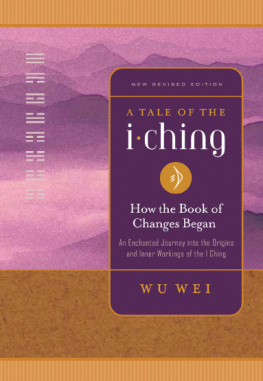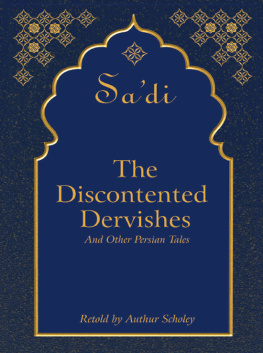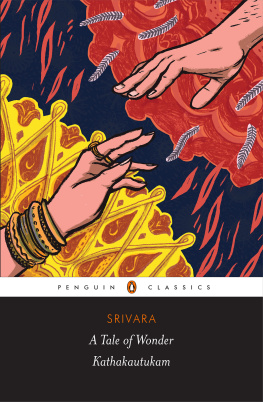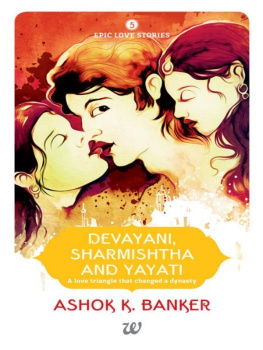MIR AMMAN was born in Delhi into a family of distinguished retainers at the Mughal Court, some time in the second half of the eighteenth century. Forced to leave the city of his ancestors at the close of the century owing to the declining fortunes of the Mughal Empire, he found employment as a munshi at the British East India Companys Fort William College in Calcutta. It was here that he translated Bgh-o-Bahr (in 1803) and Husain Wiz Kshifs celebrated book on good manners, Akhalq-e-Muhsin, which was published much later under the title Ganj-e-Khoobi (Treasure House of Virtue).
MOHAMMED ZAKIR was born in 1932 in Delhi and educated at St Stephens College, Delhi University, where he took postgraduate degrees in economics and Urdu literature. His main interests have been translation, literary criticism and Urdu linguistics. Among his published works are Distracting Words, translations from Ghalibs Urdu and Persian poetry; The Quintessence of Self-Culture, a translation of K. G. Saiyidains writings; Lessons in Urdu Script, which has seen several reprints, and some anthologies of Urdu prose and poetry. Presently he is working on a book for English readers on N. M. Rashed, a major Urdu poet. Mohammed Zakir lives in Delhi where he has been teaching Urdu language and literature at the Jamia Millia Islamia for over three decades.
A Tale of Four Dervishes
Translated from the Urdu with an Introduction by
MOHAMMED ZAKIR
PENGUIN BOOKS
This translation is humbly dedicated to my parents
who do not need to read it
PENGUIN BOOKS
Published by the Penguin Group
Penguin Books Ltd, 80 Strand, London WC2R 0RL, England
Penguin Group (USA) Inc., 375 Hudson Street, New York, New York 10014, USA
Penguin Group (Canada), 90 Eglinton Avenue East, Suite 700, Toronto, Ontario, Canada M4P 2Y3
(a division of Pearson Penguin Canada Inc.)
Penguin Ireland, 25 St Stephens Green, Dublin 2, Ireland (a division of Penguin Books Ltd)
Penguin Group (Australia), 250 Camberwell Road, Camberwell,
Victoria 3124, Australia (a division of Pearson Australia Group Pty Ltd)
Penguin Books India Pvt Ltd, 11 Community Centre,
Panchsheel Park, New Delhi 110 017, India
Penguin Group (NZ), cnr Airborne and Rosedale Roads, Albany,
Auckland 1310, New Zealand (a division of Pearson New Zealand Ltd)
Penguin Books (South Africa) (Pty) Ltd, 24 Sturdee Avenue,
Rosebank, Johannesburg 2196, South Africa
Penguin Books Ltd, Registered Offices: 80 Strand, London WC2R 0RL, England
www.penguin.com
First published by Penguin India Books 1994
Published in Penguin Classics 2006
2
Copyright Mohammed Zakir, 1994
All rights reserved
The moral right of the author has been asserted
Except in the United States of America, this book is sold subject
to the condition that it shall not, by way of trade or otherwise, be lent,
re-sold, hired out, or otherwise circulated without the publishers
prior consent in any form of binding or cover other than that in
which it is published and without a similar condition including this
condition being imposed on the subsequent purchaser
EISBN: 9780141904399
Contents
Introduction
A Tale of Four Dervishes is a translation of Mir Ammans Bgh-o-Bhr, literally Garden and Spring. Itself an Urdu translation cum compilation of earlier Persian and Urdu versions of Qissa-e-Chahr Darvesh, which Mir Amman ascribes to Amir Khusrau (d. AD 1325), it has seen several translations and transcriptions in many Indian and European languages. Recent research leads us to believe that the Qissa was compiled several years after Khusrau and that its Turkish, Persian and Urdu versions already existed before Mir Amman took it up. Be that as it may, Mir Ammans work remains significant in that it appeared at a time when very little prose literature existed in Urdu for, like many other modern Indo-Aryan languages, Urdu was seldom employed for serious writing. This was done in Persian, the language of the court and administration of Mughal India.
Most of the known prose literature in Urdu, as later traced down from the fourteenth century onwards in the Deccan or in northern India, consisted of tracts, treatises, pamphlets and translations invariably religious in character. The fictional part of it was generally marked by the tendency to use involved sentences and rhyming words. Use of simple, direct prose in fiction, except in a few works which have been unearthed by later researchers, was generally the work of the writers of the Fort William College, Calcutta, established in AD 1800 to acquaint the officers of the English East India Company with the customs and traditions of the people of India. In fact, Mir Amman must have taken great pains to work out the simplicity and directness of his work and show off in full measure the richness of the Urdu language which was a significant manifestation of the Indo-Muslim culture which originated and flourished after the advent and spread of Islam in India. At times one cannot but feel that there is a fusion here of the Indian and the Islamic Middle Ages, both in methodology and literary ideals.
Early prose in Urdu, as in many other languages, has been more akin to the literature of oral transmission. As such, it needs little introduction. It is the creation of imagination bordering on fancy and is essentially romantic in nature. In Urdu, this genre, known as dstn, has been distinguished more by polished literary presentation than by lofty aims and ideals. It does not pretend to serve any moral purpose, though it has a moral framework and may give us guidelines of good conduct, good government, or virtuous living. In the accounts of the fanciful acts of chivalry and romance, individual responsibility may also have its play in the form of proselytizing zeal.
Structurally akin to the Arabian Nights, Bgh-o-Bahr comprises five stories interspersed with several other sub-stories of uneven length and interest, loosely bound together and all with traditionally romantic themes. The four dervishes (and others) who relate their experiences are princes or rich merchants who have renounced the world on account of their unsuccessful love lives. They are guided by a supernatural force to a city where, with the intercession of a king (himself a frustrated man pining for the birth of a son to succeed him) and the help of the king of the djinn, they are reunited with their loves. Typically medieval, the stories describe a magnificent world of romance and affluenceof fairies and the djinn, moonlight and oriental gardens, feasts and ceremonies, and, of course, adventures and mishaps. It is a world where anything might and does happen as man is tossed about by fate. The basic premise, though, is that providence always takes care of us all and that in the end good always triumphs over evil.
As in the Arabian Nights, there is no rationality in this work in so far as the treatment of time and space is concerned, yet there is comparatively little that is supernatural in it. Also unlike the Arabian Nights, it is not marked by elaborate wooing scenes and erotica or by the frailty and treachery of the fair sex. Though some of the female characters may appear vengeful at times, on the whole they show remarkable courage, faithfulness, integrity and ingenuity. Bgh-o-Bahr thus portrays the more impressive features of Indian womanhood.
Through the genius of the Urdu language, Bgh-o-Bahr






![Freely - Stamboul sketches: [encounters in old Istanbu]l](/uploads/posts/book/201354/thumbs/freely-stamboul-sketches-encounters-in-old.jpg)



